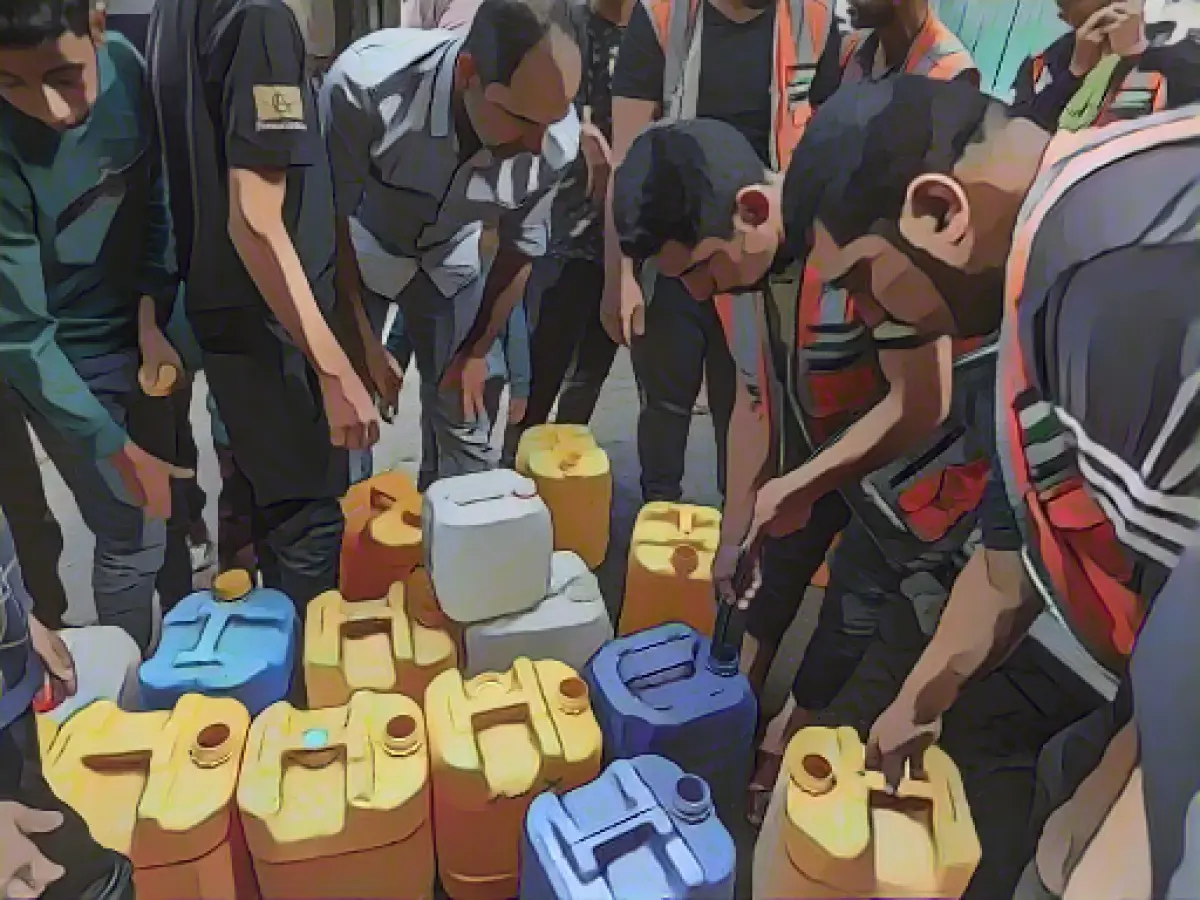Lack of Fuel Cripples Gaza Water Suppliers, Affecting Over 200,000 Residents
In an alarming turn of events, the United Nations (UN) has reported that two water suppliers in Gaza's southern region have halted operations due to a severe fuel shortage. As a result, about 200,000 individuals now lack access to clean drinking water, according to the UN's Emergency Aid Office, OCHA. The UN Relief and Works Agency for Palestine Refugees in the Near East (UNRWA) revealed this situation on Tuesday, expressing uncertainty over sustaining humanitarian support for the vulnerable population in the remainder of the week.
The latest fuel supplies have virtually run dry, casting doubt over the distribution of aid from Egypt via the Rafah border crossing. Since October 7, nearly 1.6 million Gaza Strip inhabitants, out of an approximate 2.3 million total, have been forced to flee their homes following Israeli attacks. Around half of these displaced individuals have sought refuge in UNRWA facilities, with the UN agency providing them with essential sustenance.
The Impact of Palestinian-Israeli Conflicts
The ongoing Palestinian-Israeli conflicts, such as the Gaza war, have inflicted numerous challenges on the Gaza Strip residents. The water supply disruption is one of the pressing concerns that UN agencies like OCHA and UNRWA are grappling with. The conflict has also rendered public health facilities in Gaza susceptible to further deterioration.
A Growing Humanitarian Crisis
Amid this backdrop, the UN has emphasized the necessity of prompt international aid and diplomatic interventions to protect and uphold the human rights of the affected populations in the region. This call to action comes as the UN closely monitors the unfolding crisis in Gaza, including the water supply disruption, fuel shortages, and broader socio-political challenges.
Fuel Crisis and its Impact on Gaza
The fuel crunch in Gaza is disrupting water supply and humanitarian aid, causing grave concerns. Approximately 70,000 liters of fuel are required daily for minimal water, sanitation, and public health services in Gaza. As of now, the region has just 28 percent of this required amount enough to operate only a fraction of essential services.
The WASH Cluster partners have only received 12 percent of the daily minimal fuel requirement between December 11 and 17, making virtually all WASH facilities inoperable in areas north of Wadi Gaza. Moreover, the UAE cross-border desalination plant remains non-functional due to pipeline damage and proximity to the Philadelphi corridor, depriving returning populations of their primary water source.
The desert region's 30 main water wells in Rafah are in dire straits. Fifteen of these wells are completely destroyed, and the other fifteen need significant rehabilitation. The widespread water well damage further impedes Gaza's limited water infrastructure, exacerbating the humanitarian crisis.
The fuel scarcity has also hampered the delivery of essential supplies, including food and medical aid. For instance, bakeries could only operate at half capacity due to the lack of fuel. Even essential deliveries, such as medical equipment, have been delayed due to the complexities of coordination and Israeli approval requirements.
In light of these pressing challenges, the need for urgent action to address the humanitarian crisis in Gaza and restore basic services like water supplies is paramount.








